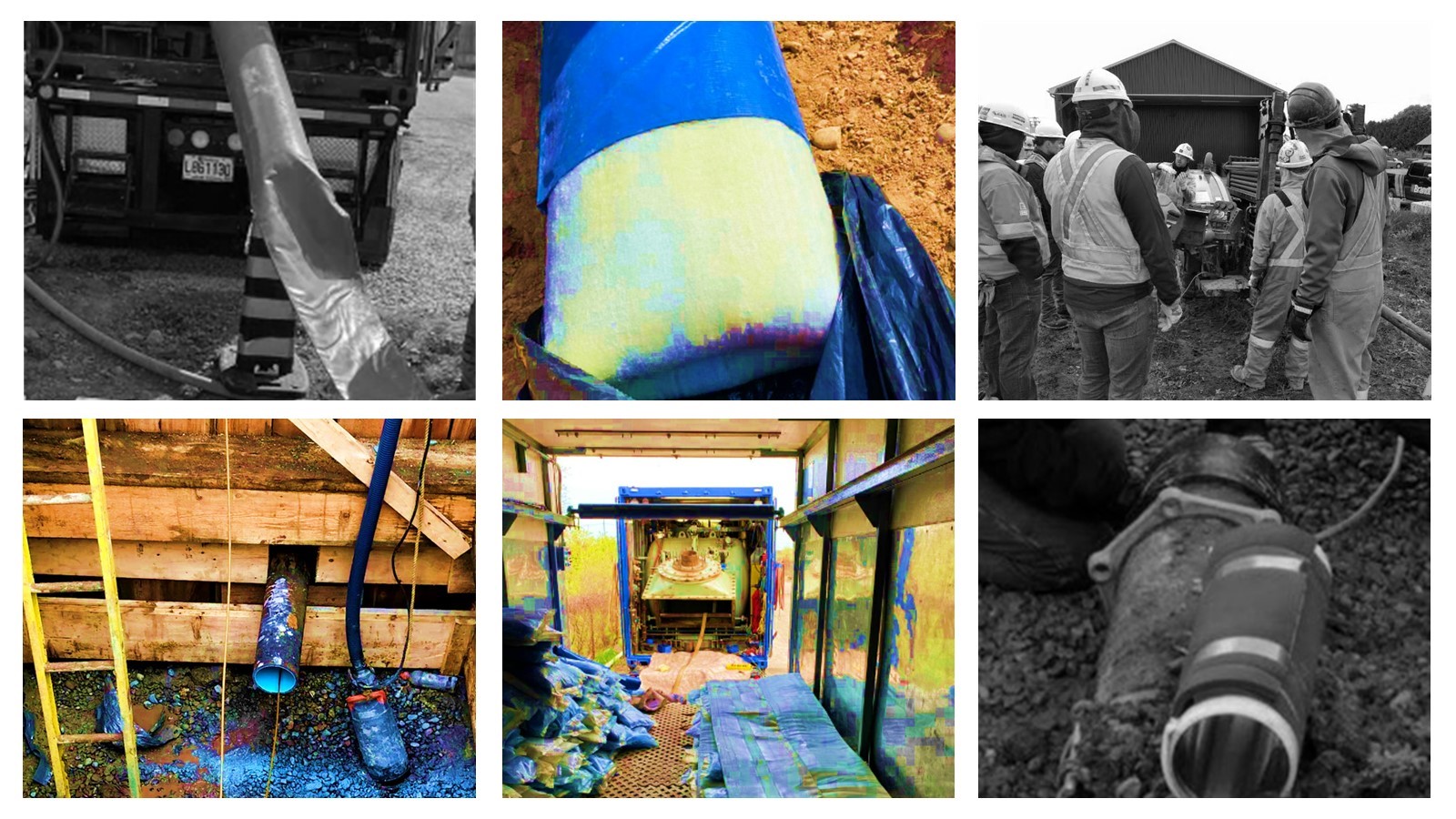Introduction to Trenchless Technology
March 19-20, 2023 (Tuesday, Wednesday) | 8:00 AM – 4:00 PM
Venue: Holiday Inn Oakville (Centre)
590 Argus Road, Oakville ON L6J 3J3

Description
Trenchless technologies include methods and tools for underground pipelines and utilities’ new installation, replacement, rehabilitation, locating, and condition assessment with minimum excavation from the surface. This course will present state-of-the-art trenchless methods and techniques to install, replace, and rehabilitate aging pipelines and utility ducts efficiently and cost-effectively. Topics include trenchless project feasibility analysis and planning; topographic and geotechnical considerations; selecting appropriate trenchless technology, pipe materials, and lining materials; risk analysis; and quality assurance and quality control. Furthermore, pipeline condition assessment techniques will be presented. Finally, the industry’s good practice guidelines, standards and specifications will be discussed.
What You Will Learn
Broader Understanding of Trenchless Technology
Gain knowledge about the vast array of trenchless methods, processes, and techniques to rehabilitate and replace underground pipelines and utility ducts
Trenchless Technology Selection Process
Select appropriate rehabilitation and replacement techniques based on factors such as pipeline condition, failure modes, surface and underground conditions, and cost
Best Practices Guidelines, Standards, and Specifications
Become familiar with the industry’s best practice guidelines, standards, and specifications
Project Management
Project delivery considerations; feasibility analysis and planning; topographic and geotechnical considerations; risk analysis; and quality assurance and quality control
Course Content
Module 1: An Overview of Trenchless Technology
- Classification Systems for Trenchless Methods
- Trenchless Technology Market Trends
- How Do Trenchless Installations Differ from Open Cut Construction?
- Trenchless Technology Selection Process
Module 2: Subsurface Utility Engineering
- ASCE Process for Investigating and Documenting Existing Utilities
- Four SUE Quality Levels
- CSA S250 Standard for Mapping of Underground Utilities
- How Does SUE Helps Reduce Project Risk and Optimizing Cost?
- Case Studies
Module 3: Trenchless Methods for New Pipe Installation
- Horizontal Directional Drilling
- Pipe Jacking and Microtunnelling
- Pipe Bursting
- Pipe Ramming, Auger Boring, and Impact Moling
Module 4: Gravity and Pressure Pipeline In-situ Condition Assessment
- Visual Assessments (CCTV, Laser, Sonar)
- NDT Assessments, Robotic and Manned Entry
Module 5: Trenchless Methods for Pipeline Rehabilitation
- Cured-in-Place-Pipe (CIPP)
- Spray-in-Place-Pipe (SIPP)
- Sliplining and Close-Fit Lining
- Spot Repair
- Other Rehabilitation Techniques
Module 6: Maintenance Chambers (Manholes)
- Condition Assessment
- Rehabilitation
Who Should Attend
This course is designed for public and private civil infrastructure owners, engineers, contractors, and administrators who wish to learn trenchless methods. Participants by job function include:
- Project and Program Managers, Engineers, and Technologists
- Engineering Consultants
- Contractors
- Utility Owners
- Municipal Engineers and Technologists
Meet the Instructors

Gordon R. Henrich
Vice President at Clearwater Pipe Triage, Inc.
President Pipeline Integrity Technology Associates (PITA)
Gord Henrich specializes in multi-sensor pipeline inspection and trenchless rehabilitation. For more than 20 years, Gordon has provided unique evidence-based pipeline inspection methods and state-of-the-art rehabilitation solutions to contractors and the municipal market based on affordability, flexibility, accuracy, and performance. Gordon established Pipeline Integrity Technology Associates (PITA) to ensure that suitable technology is used for each unique application and at a fair market price for pipeline owners. Gord has published peer-reviewed papers, developed training programs, and presented at several national and international forums.

Rizwan Younis, PhD, P.Eng.
Rizwan Younis is the founder of Building Better Infrastructure and Trenchless Institute. Previously, Dr. Younis served as Technical Director at the University of Waterloo’s Centre for Advancement of Trenchless Technologies and managed the largest trenchless technology professional education and training program in Canada.
Dr. Younis has over 20 years of experience in infrastructure management, pipeline condition assessment, pilot projects with new technologies, infrastructure finance, and trenchless rehabilitation and installation of underground pipelines.
Before joining academia, Dr. Younis worked as a consultant on the design and construction of large-scale civil infrastructure projects in the water and highway sectors. Furthermore, he has extensive knowledge and experience in developing tender documents and carrying out bid evaluations and contract awards for World Bank and Asian Development Bank-sponsored traditional and collaborative infrastructure development projects.
Dr. Younis graduated with a Ph.D. in Civil Engineering and a BMath Honours (Systems Management) from the University of Waterloo and a B.Sc. Civil Engineering from University of Engineering and Technology, Lahore, Pakistan.
Fees and Registration
For registration inquires, please contact Good Roads Education and Training by email education@goodroads.ca or phone +1 289 291 6472.
